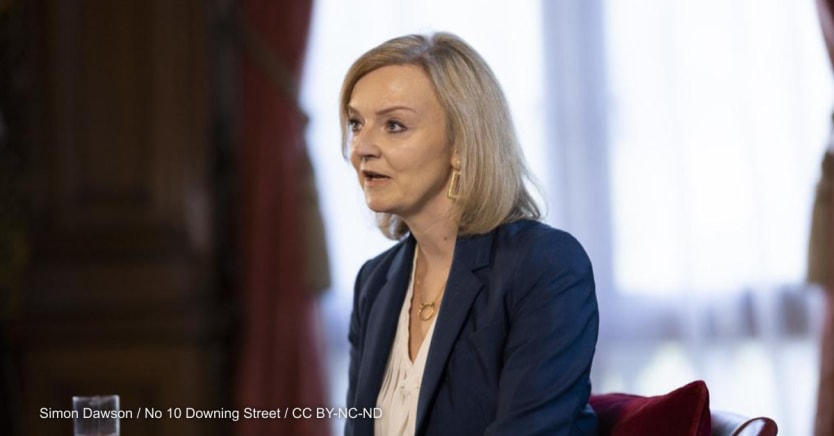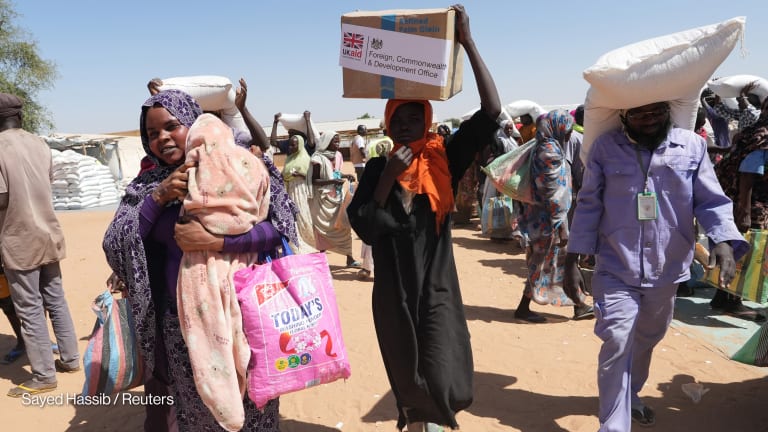
A political struggle has begun between the United Kingdom's Foreign Secretary Liz Truss and Chancellor Rishi Sunak over Treasury plans to continue cutting the nation’s aid budget.
A senior source told Devex that Truss’ experience in Treasury meant she was more familiar with how the department worked than her predecessor, Dominic Raab, whose tenure saw crippling aid cuts.
A Treasury Spending Review, which decides departmental budgets, is due Oct. 27 and Sunak is widely believed to be trying to cut costs.
UK aid budget could face third round of cuts, experts warn
Economists fear the U.K. government's forthcoming spending review could wipe even more from the embattled aid budget, jeopardizing the U.K.'s position in the world.
The highly influential Sunak has so far been successful in his attempts to claw money from the U.K. aid budget, having first announced that the government would reduce development spending from 0.7% to 0.5% of national income, causing a £4.5 billion ($6.13 billion) shortfall. The government then secured a parliamentary endorsement for the tough fiscal conditions Sunak set for returning to 0.7% aid spending.
Experts have recently voiced concerns that despite the scale of the aid cuts so far, there could be further cuts to the aid budget as the Treasury plans to charge items such as COVID-19 vaccines and Special Drawing Rights to the budget, leaving less money for other programs.
“It is mainly about vaccines and SDRs,” the source told Devex. “[Truss] has started the battle. Not about 0.5 [%] per se but what to count given these exceptional items. Unlike Raab, she knows how [the Treasury]’s box of tricks works.”
The source added: “As former [chief secretary to the Treasury] she knows that using reserves and opportunistic accounting mechanisms are common — so why not in this case?”
Donating COVID-19 vaccines is expected to cost the U.K. government £1 billion, a tenth of this year’s aid budget, but because of the rare emergency of the pandemic, and the benefit to the U.K. national interest, many believe vaccines should be provided in addition to the 0.5% aid budget.
Devex reported in June on plans by the Treasury to charge Special Drawing Rights, issued by the International Monetary Fund, to the aid budget. These redistributed SDRs cost the U.K. very little: The IMF released them as additional development financing to ease the economic pressures on lower-income countries wrought by the pandemic.
Counting the SDRS, vaccines and other items against the aid budget — other costs that have been floated as potential inclusions are Sudanese debt relief, the British Council, and certain financial transactions — could cost it billions, and greatly reduce the U.K.’s development stature, according to Ranil Dissanayake, policy fellow at the Center for Global Development.
A U.K. government spokesperson told Devex that the U.K. is a “world leader” in international development, having spent £10 billion on aid this year, “a greater proportion of our national income than the majority of the G7.”
Update, Oct. 12, 2021: This article has been updated with reporting to reflect the response of the U.K. government.
Search for articles
Most Read
- 1
- 2
- 3
- 4
- 5








